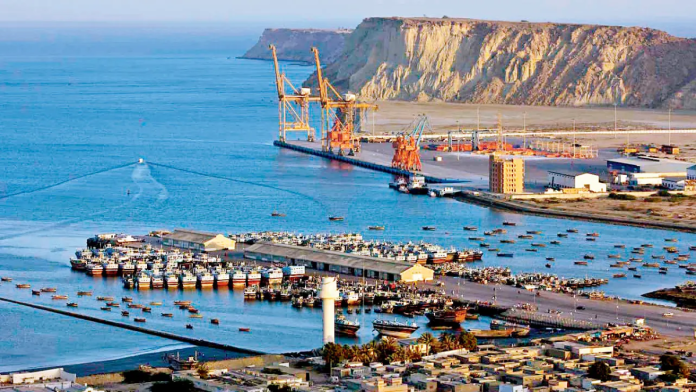India has received major relief after the United States granted a six-month waiver on sanctions linked to the Chabahar Port project in Iran. This means India can continue operating and developing the port without facing American penalties for now. The announcement was confirmed by the Ministry of External Affairs (MEA) during a press briefing, where spokesperson Randhir Jaiswal shared the update.
The decision is important for India because the port is a key part of its trade and connectivity plans. It allows India to reach Afghanistan and Central Asian countries through Iran, without depending on the route through Pakistan. The port is located along the Gulf of Oman and has been developed by India for easier movement of goods.
The waiver had recently expired, which created concern that India might have to pause its work and trade through the port. Following several rounds of diplomatic discussions with the US, the extension has now been approved for six more months.
Why the Chabahar Port Matters to India
The Chabahar Port provides India with a direct sea-to-land route into Afghanistan and further into Central Asia. This helps India trade more easily and transport goods faster. Without this route, India would have to use land routes through Pakistan, which is not always possible due to tense relations.
India began working on the Chabahar Port with Iran as a long-term plan to improve regional transport links. The port allows cargo ships from India to reach Iran by sea. From there, goods can be sent by road or rail to countries further north.
The project also supports humanitarian supplies. In the past, food and medical aid sent by India to Afghanistan have been transported through the Chabahar route. This makes it not only a trade project but also a helpful channel for friendly and emergency support.
The United States normally places strong restrictions on countries that trade with Iran because of concerns over Iran’s nuclear activities. These sanctions make business and financial transactions difficult. However, the US has made an exception in the case of Chabahar because the port is seen as important for the stability and development of the region.
US sanctions rock Singapore’s Khoon Group—links to alleged cybercrime network spark corporate exodus
Sanctions Background and India’s Efforts to Secure the Waiver
The US imposed sanctions on Iran to apply pressure over its nuclear programme. Because of these sanctions, international companies and countries usually avoid business dealings with Iran, as they could face penalties from the US. Businesses can lose access to the US financial system or be blocked from operating in America.
Reports mentioned that the matter was under discussion for some time and that India wanted the waiver renewed before the earlier deadline ended. A gap in approval could have interrupted port operations and slowed trade. The renewed waiver now ensures that work, cargo movement, and port management can continue smoothly.
The US had recently reimposed several sanctions on Iran as part of its policy, which made this approval even more significant. Getting another waiver during a strict sanctions period shows strong diplomatic engagement from India. This helped avoid a situation where India would have had to halt or limit its activities at the port.
$50 billion blow to Putin’s war chest — Western sanctions hammer Russia’s oil exports
Official Confirmation and Media Coverage
The Ministry of External Affairs confirmed the extension during a press briefing. Spokesperson Randhir Jaiswal said the United States had granted a six-month waiver, allowing India to continue operating and developing the Chabahar Port.
Indian officials held regular discussions with US counterparts to avoid any break in port operations after the earlier waiver expired.


